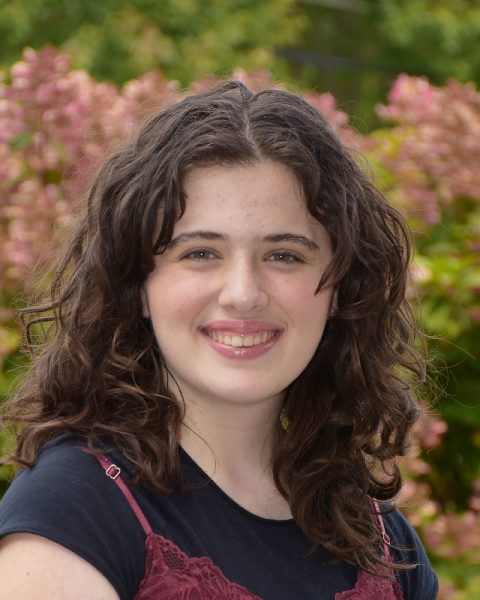Clubs have met just eight times this academic year during the designated Wednesday activities period, as the time also rotates to host speakers and events.
Despite a new schedule this year, featuring an 8:00 a.m. start time, the relocation of alternating club, community meetings, and events to the afternoon, and the standardization of core class periods to uniform 50-minute blocks, it did not allocate a specific time block exclusively for club activities.
“We are trying to squeeze every minute we can out of the schedule,” Dean of Students Paul Murray said.
Upper School Head Joshua Neudel echoed Murray, highlighting the challenges of including a designated club block.
“When the scheduling committee worked to evaluate the schedule, they hoped to increase club time but it was not possible,” Neudel said. “The School would have to eliminate a class meeting block which would not allow students to take as many electives, impacting students’ ability to do diploma programs.”
However, this year, efforts have been made by the School to increase the number of club meetings by giving clubs the option to meet at lunch and reducing the number of assemblies.
According to MUN Adviser Kelly Nelly, her students met only four meeting periods before the January 18 Yale Model United Nations conference.
“It would be helpful if we could have more time together to prepare, especially for students who have not attended in the past,” Neely said.
Still, Neely urged that she did her utmost to train delegates and provide them with training resources.
“Although there were not many meetings ahead of time, those who were completely unprepared had not shown up to those meetings and might not have looked at the resources on Canvas,” Neely said. “Those who took their roles as delegates seriously understood the necessity of preparing for the conference on their own time—and were proactive in talking with me about the work they needed to do.”
Neudel said that “anything can be improved,” but he also feels that the School is doing the best it can to fulfill its commitment to fostering excellence.
“If we wanted to have more club meeting time, we would have to get rid of an academic block,” Neudel said. “And if we got rid of an academic block, that would mean people would have one less elective that they could take, potentially. And if students didn’t have the option to take as many electives, we couldn’t run our diploma programs. I think a lot of decisions that we have to make as a School is where to put our time and energy.”
Still, Murray recognizes that MUN could benefit from consistent meeting times.
“For a club that needs a mandatory meeting, of course, that’s not ideal,” Murray said. “If Model UN wants to shift the way they do things, we would also look at a fundamental shift in how we treat Model UN,” Murray said.
Neudel suggested weekend or after-school meetings for MUN and related clubs, aligning with the practices of nearby schools. He also advised the Gender and Sexuality Alliance and diversity clubs to meet at lunch on set days to avoid conflicts.
“There was a time when people would just start scheduling lunchtime meetings and there would be conflicts with an affinity meeting, or a Gatorade meeting, or a diploma program meeting,” Neudel said. “A couple of years ago, we brought organization to that to minimize conflict.”
Neudel also highlighted recent efforts to limit guest speakers, ensuring club meetings retain their dedicated time slots. Clubs have met over the past two weeks and are scheduled for another session next week, ahead of a sports assembly that precedes a two-week break.
According to Neudel, recent 12th-grade exit surveys reveal an increasing positive sentiment among seniors towards club culture, with past concerns frequently highlighting insufficient meeting times.
“In the last three years that hasn’t been the case,” Neudel said. “And there have been comments about how the clubs have really become a lot stronger than they used to be. There also used to be concerns about clubs in our annual parent surveys, and that hasn’t come up as an issue in the past number of years, too.”
Still, with three years of experience in MUN, Stephanie Altschul ’25 feels that the club lacked sufficient time to properly prepare their delegates.
“Many of us were totally unprepared when we went to the Model UN conference in New Haven,” Altschul said.
Despite this, MUN delegate Baden Howard ’24 won Outstanding Delegate at the Yale MUN conference.
“I think that the other delegates in my committee had a lot to do with my recognition,” Howard said. “Having a great group to collaborate, including outside of official meetings, helped me improve my skills.”
Still, Howard feels that the School’s delegation would have benefited from more frequent meetings.
“I think that it’s super important, especially for people newer to MUN, to have more of an introduction,” he said.
“I love [Mahjong Club],” Shimomura said. “But I think we should have more time for it because it’s fun and a break for my brain, which I enjoy.”
Rupa Houndegla, who advises the Bollywood Club, agrees.
“There are a lot of breaks in continuity for the clubs,” Houndegla said.
Frances Fremont-Smith, who co-runs the Mahjong Club, also feels similarly.
“Clubs should meet every week,” Fremont-Smith said.
However, not everyone feels the club system requires improvement.
“I think [the current system] is fine for Walking Club,” Dahlia Smith ’27 said.
Nancy Bradley, who leads the Walking Club, is not concerned about how often clubs meet, but that attendance for clubs is recorded on paper rather than through Veracross.
“Some students choose not to show up for my club and I don’t know how they are or who is responsible for them,” Bradley said.
The School is learning how to best utilize Veracross, but club rosters will be in the student information system next fall, according to Neudel.
“When Mr. Murray finds out that students are skipping things, they often lose off-campus privileges or receive a Saturday detention,” Neudel said.



